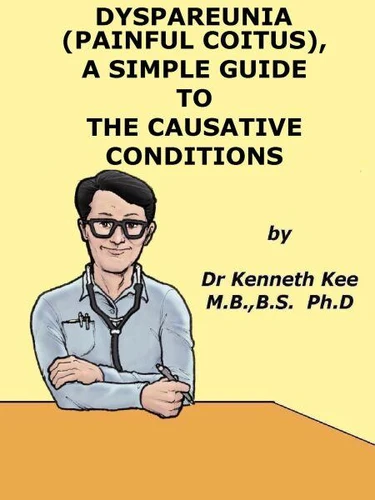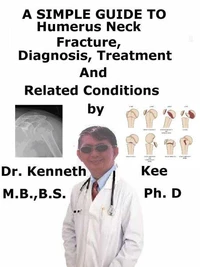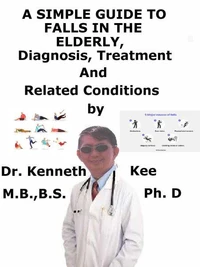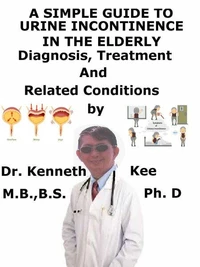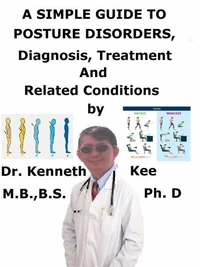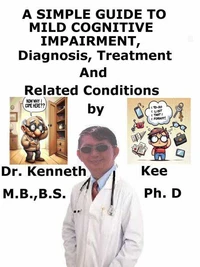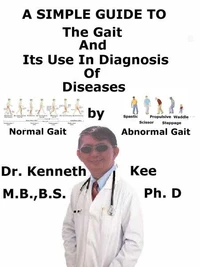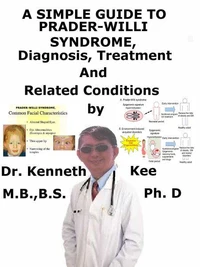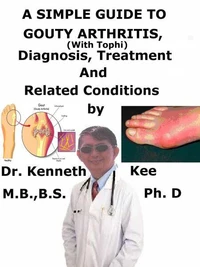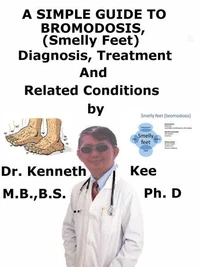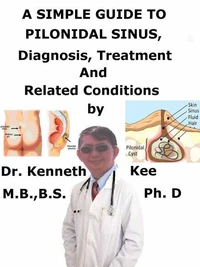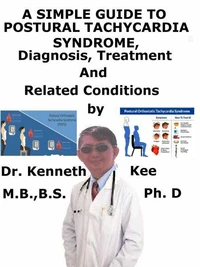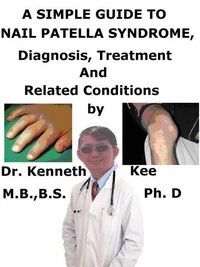Painful Coitus or Dyspareunia, A Simple Guide To Causative Diseases
Par :Formats :
Disponible dans votre compte client Decitre ou Furet du Nord dès validation de votre commande. Le format ePub est :
- Compatible avec une lecture sur My Vivlio (smartphone, tablette, ordinateur)
- Compatible avec une lecture sur liseuses Vivlio
- Pour les liseuses autres que Vivlio, vous devez utiliser le logiciel Adobe Digital Edition. Non compatible avec la lecture sur les liseuses Kindle, Remarkable et Sony
 , qui est-ce ?
, qui est-ce ?Notre partenaire de plateforme de lecture numérique où vous retrouverez l'ensemble de vos ebooks gratuitement
Pour en savoir plus sur nos ebooks, consultez notre aide en ligne ici
- FormatePub
- ISBN978-1-311-87762-8
- EAN9781311877628
- Date de parution11/12/2014
- Protection num.pas de protection
- Infos supplémentairesepub
- ÉditeurJPCA
Résumé
Dyspareunia you are what couples hateYou cause the pain when they mateMen feel pain with their tight foreskinWomen feel pain when the penis tries to get inSometimes the pain occur when there is a hard hymenTo break through, the pain will definitely heightenRemnants of the hymen being stretched also cause painSo does infections of the vulva and Bartholin glandPelvic inflammatory disease and vaginal infectionThinning of the vaginal wall and poor lubricationFriction and irritation of the vagina will produce painMore lubricants and foreplay will reduce the strainSurgery scar can make the opening too tight and sorePenetration by the penis will be painful and rawWhat an enjoyable encounter will not be soSometimes it is better for a couple to foregoRemove the pain and enlarge the opening by operationAntibiotics and hormones will reduce the inflammationVaginal lubricants, pelvic relaxation exercises will facilitateIncreased foreplay, gentleness in sex, the couple will be more intimate-An original poem by Kenneth KeeInteresting Tips about the Painful CoitusA Healthy Lifestyle1.
Take a well Balanced Diet2. Encourage the couple to add pleasant, sexually exciting experiences to their regular interactions, such as bathing togetherMoisturizing skin lotion may be recommended as an alternative lubricantRecommending a change in coital position to one admitting less penetration3. Keep bones and body strongBone marrow produces our bloodEat foods rich in calcium like yogurt, cheese, milk, and dark green vegetables.
Eat foods rich in Vitamin D, like eggs, fatty fish, cereal, and fortified milk. Eat food rich in Vitamins B and C such as green vegetables and fruitsZinc and other minerals are important to the body4. Get enough rest and SleepAvoid stress and tension5. Exercise and stay active. It is best to do weight-bearing exercise such as walking, jogging, stair climbing, dancing, or lifting weights for 2oe hours a week.
One way to do this is to be active 30 minutes a day at least 5 days a week. Begin slowly especially if a person has not been active.6. Do not drink more than 2 alcohol drinks a day for a man or 1 alcohol drink a day for a woman. Alcohol use also increases the chance of falling and breaking a bone. Alcohol can affect the neurons and brain cells. Too much alcohol with smoking can increase sensitivity to painful intercourse.7.
Stop or do not begin smoking. It also interferes with blood supply and healing. Smoking reduces the blood flow to the uterus and can increase pain. Chapter 1DyspareuniaDyspareunia is defined as painful coitus. Dyspareunia (from Greek meaning "badly mated") is pain during or after sexual intercourse due to medical or psychological causes. It can affect men but is more common in womenWomen with dyspareunia may have pain in the vagina, clitoris or labia.
Risk factorsIt occurs most frequently in:1. Those who are sexually inexperienced (particularly if their partners are also inexperienced)2. Those who are peri- or post-menopausalThe causes are often reversible even when long-standing but self-perpetuating pain is a factor after the original cause has been removed. For women causes include:Congenital1. Endometriosis2. Vaginal septa3. Thickened undilatable hymen4.
Hypoplasia of the introitus5. Ovarian cysts can cause deep painAcquired1. Infections candidiasis, chlamydia, trichomoniasis, urinary tract infections, pelvic inflammatory disease2. Vulvar v...
Take a well Balanced Diet2. Encourage the couple to add pleasant, sexually exciting experiences to their regular interactions, such as bathing togetherMoisturizing skin lotion may be recommended as an alternative lubricantRecommending a change in coital position to one admitting less penetration3. Keep bones and body strongBone marrow produces our bloodEat foods rich in calcium like yogurt, cheese, milk, and dark green vegetables.
Eat foods rich in Vitamin D, like eggs, fatty fish, cereal, and fortified milk. Eat food rich in Vitamins B and C such as green vegetables and fruitsZinc and other minerals are important to the body4. Get enough rest and SleepAvoid stress and tension5. Exercise and stay active. It is best to do weight-bearing exercise such as walking, jogging, stair climbing, dancing, or lifting weights for 2oe hours a week.
One way to do this is to be active 30 minutes a day at least 5 days a week. Begin slowly especially if a person has not been active.6. Do not drink more than 2 alcohol drinks a day for a man or 1 alcohol drink a day for a woman. Alcohol use also increases the chance of falling and breaking a bone. Alcohol can affect the neurons and brain cells. Too much alcohol with smoking can increase sensitivity to painful intercourse.7.
Stop or do not begin smoking. It also interferes with blood supply and healing. Smoking reduces the blood flow to the uterus and can increase pain. Chapter 1DyspareuniaDyspareunia is defined as painful coitus. Dyspareunia (from Greek meaning "badly mated") is pain during or after sexual intercourse due to medical or psychological causes. It can affect men but is more common in womenWomen with dyspareunia may have pain in the vagina, clitoris or labia.
Risk factorsIt occurs most frequently in:1. Those who are sexually inexperienced (particularly if their partners are also inexperienced)2. Those who are peri- or post-menopausalThe causes are often reversible even when long-standing but self-perpetuating pain is a factor after the original cause has been removed. For women causes include:Congenital1. Endometriosis2. Vaginal septa3. Thickened undilatable hymen4.
Hypoplasia of the introitus5. Ovarian cysts can cause deep painAcquired1. Infections candidiasis, chlamydia, trichomoniasis, urinary tract infections, pelvic inflammatory disease2. Vulvar v...
Dyspareunia you are what couples hateYou cause the pain when they mateMen feel pain with their tight foreskinWomen feel pain when the penis tries to get inSometimes the pain occur when there is a hard hymenTo break through, the pain will definitely heightenRemnants of the hymen being stretched also cause painSo does infections of the vulva and Bartholin glandPelvic inflammatory disease and vaginal infectionThinning of the vaginal wall and poor lubricationFriction and irritation of the vagina will produce painMore lubricants and foreplay will reduce the strainSurgery scar can make the opening too tight and sorePenetration by the penis will be painful and rawWhat an enjoyable encounter will not be soSometimes it is better for a couple to foregoRemove the pain and enlarge the opening by operationAntibiotics and hormones will reduce the inflammationVaginal lubricants, pelvic relaxation exercises will facilitateIncreased foreplay, gentleness in sex, the couple will be more intimate-An original poem by Kenneth KeeInteresting Tips about the Painful CoitusA Healthy Lifestyle1.
Take a well Balanced Diet2. Encourage the couple to add pleasant, sexually exciting experiences to their regular interactions, such as bathing togetherMoisturizing skin lotion may be recommended as an alternative lubricantRecommending a change in coital position to one admitting less penetration3. Keep bones and body strongBone marrow produces our bloodEat foods rich in calcium like yogurt, cheese, milk, and dark green vegetables.
Eat foods rich in Vitamin D, like eggs, fatty fish, cereal, and fortified milk. Eat food rich in Vitamins B and C such as green vegetables and fruitsZinc and other minerals are important to the body4. Get enough rest and SleepAvoid stress and tension5. Exercise and stay active. It is best to do weight-bearing exercise such as walking, jogging, stair climbing, dancing, or lifting weights for 2oe hours a week.
One way to do this is to be active 30 minutes a day at least 5 days a week. Begin slowly especially if a person has not been active.6. Do not drink more than 2 alcohol drinks a day for a man or 1 alcohol drink a day for a woman. Alcohol use also increases the chance of falling and breaking a bone. Alcohol can affect the neurons and brain cells. Too much alcohol with smoking can increase sensitivity to painful intercourse.7.
Stop or do not begin smoking. It also interferes with blood supply and healing. Smoking reduces the blood flow to the uterus and can increase pain. Chapter 1DyspareuniaDyspareunia is defined as painful coitus. Dyspareunia (from Greek meaning "badly mated") is pain during or after sexual intercourse due to medical or psychological causes. It can affect men but is more common in womenWomen with dyspareunia may have pain in the vagina, clitoris or labia.
Risk factorsIt occurs most frequently in:1. Those who are sexually inexperienced (particularly if their partners are also inexperienced)2. Those who are peri- or post-menopausalThe causes are often reversible even when long-standing but self-perpetuating pain is a factor after the original cause has been removed. For women causes include:Congenital1. Endometriosis2. Vaginal septa3. Thickened undilatable hymen4.
Hypoplasia of the introitus5. Ovarian cysts can cause deep painAcquired1. Infections candidiasis, chlamydia, trichomoniasis, urinary tract infections, pelvic inflammatory disease2. Vulvar v...
Take a well Balanced Diet2. Encourage the couple to add pleasant, sexually exciting experiences to their regular interactions, such as bathing togetherMoisturizing skin lotion may be recommended as an alternative lubricantRecommending a change in coital position to one admitting less penetration3. Keep bones and body strongBone marrow produces our bloodEat foods rich in calcium like yogurt, cheese, milk, and dark green vegetables.
Eat foods rich in Vitamin D, like eggs, fatty fish, cereal, and fortified milk. Eat food rich in Vitamins B and C such as green vegetables and fruitsZinc and other minerals are important to the body4. Get enough rest and SleepAvoid stress and tension5. Exercise and stay active. It is best to do weight-bearing exercise such as walking, jogging, stair climbing, dancing, or lifting weights for 2oe hours a week.
One way to do this is to be active 30 minutes a day at least 5 days a week. Begin slowly especially if a person has not been active.6. Do not drink more than 2 alcohol drinks a day for a man or 1 alcohol drink a day for a woman. Alcohol use also increases the chance of falling and breaking a bone. Alcohol can affect the neurons and brain cells. Too much alcohol with smoking can increase sensitivity to painful intercourse.7.
Stop or do not begin smoking. It also interferes with blood supply and healing. Smoking reduces the blood flow to the uterus and can increase pain. Chapter 1DyspareuniaDyspareunia is defined as painful coitus. Dyspareunia (from Greek meaning "badly mated") is pain during or after sexual intercourse due to medical or psychological causes. It can affect men but is more common in womenWomen with dyspareunia may have pain in the vagina, clitoris or labia.
Risk factorsIt occurs most frequently in:1. Those who are sexually inexperienced (particularly if their partners are also inexperienced)2. Those who are peri- or post-menopausalThe causes are often reversible even when long-standing but self-perpetuating pain is a factor after the original cause has been removed. For women causes include:Congenital1. Endometriosis2. Vaginal septa3. Thickened undilatable hymen4.
Hypoplasia of the introitus5. Ovarian cysts can cause deep painAcquired1. Infections candidiasis, chlamydia, trichomoniasis, urinary tract infections, pelvic inflammatory disease2. Vulvar v...

